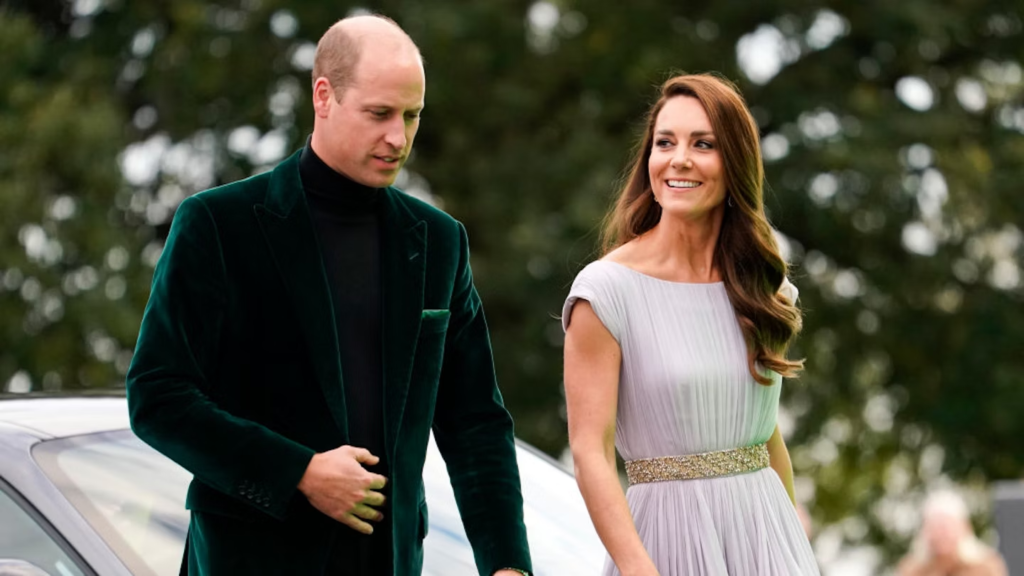Kate Williams, a renowned British historian, author, and broadcaster, has become an influential figure in the world of historical studies. Best known for her insightful narratives on the lives of historical figures and moments that shaped the world, Williams brings the past alive with her keen intellect and engaging storytelling. Her work spans across several centuries, focusing particularly on British royalty, women’s history, and revolutionary figures. Through her books, television appearances, and academic contributions, Williams has made history accessible and compelling for a wide audience.
In this article, we will delve into Kate Williams’ life, career, notable works, and her influence on public history, followed by a look at how she has contributed to the revitalization of historical interest, particularly in the fields of monarchy and gender studies. Let’s explore what makes Williams a pivotal figure in contemporary historical scholarship.
Early Life and Education
Early Influences

Kate Williams was born on November 30, 1974, in Staffordshire, England. Her fascination with history began at a young age, inspired by historical novels and her surroundings. Raised in a family that encouraged intellectual curiosity, she developed a passion for understanding the past and its impact on the present.
Education
Williams pursued her education with the same zeal she would later bring to her historical work. She attended Oxford University, where she earned her undergraduate degree in Modern History. Her academic prowess didn’t stop there; she continued to study history at Royal Holloway, University of London, where she completed her PhD. Her thesis focused on the relationship between women and power during the French Revolution, setting the stage for her future work that often explores the interplay between gender and authority.
Career Beginnings
Academic Foundation
Williams’ early academic focus on gender history and revolutionary politics helped her establish herself as an authority in these areas. Her ability to analyze the lives of women in historical contexts allowed her to offer fresh perspectives on well-trodden historical events. Her PhD research provided the backbone for many of her later projects, particularly her emphasis on historical narratives that challenge traditional male-dominated perspectives.
Writing Career
Her first foray into writing was as an academic, publishing articles and contributing to journals. However, she soon expanded her scope by writing for a general audience. Williams’ ability to distill complex historical events into engaging narratives made her an appealing voice in both academic and popular history circles.
Notable Works
Becoming Queen (2008)
Williams’ first major success came with her biography Becoming Queen, which tells the story of Queen Victoria’s early life and the often-overlooked figure of Princess Charlotte, the original heir to the British throne. This work was particularly well-received for its attention to detail and its compelling depiction of the complex royal politics of 19th-century Britain.
Young Elizabeth: The Making of the Queen (2015)
In Young Elizabeth, Williams traces the early life of Queen Elizabeth II, from her childhood through to her ascension to the throne. The book is notable for its portrayal of Elizabeth as both a product of her environment and a unique individual who would shape the future of the British monarchy. Williams’ narrative humanizes the queen while offering readers a deeper understanding of her impact on modern British history.
Rival Queens: The Betrayal of Mary, Queen of Scots (2018)
This book delves into the relationship between Elizabeth I and Mary, Queen of Scots, two powerful women whose lives were inextricably linked by their crowns, political machinations, and ultimately, betrayal. Williams brings to life the intricacies of court politics, personal vendettas, and the ultimate struggle for power between two of history’s most iconic queens.
The Storms of War Trilogy
Williams has also ventured into historical fiction with The Storms of War trilogy, which explores the effects of World War I on a British family. The series is known for its immersive detail, intricate character development, and the way it captures the societal changes wrought by war. While primarily known for her historical biographies, Williams has proven her versatility with this fictional endeavor.
Kate Williams as a Broadcaster
Television Appearances

Kate Williams is a frequent face on British television, where she has appeared on a number of historical documentaries and panel shows. Her expert knowledge and ability to communicate complex ideas in an accessible manner have made her a sought-after commentator. Notably, she has appeared on programs such as BBC’s The One Show, Timewatch, and The Great British Royal Family.
Williams also hosted The Stuarts: A Bloody Reign, which was a series focusing on the Stuart monarchs of Britain. Her ability to bring nuance and energy to these often tragic and turbulent stories won her acclaim as a dynamic and engaging television historian.
Public History and Presentations
In addition to her television work, Williams is a regular on the lecture circuit, giving talks at institutions such as the British Library, the National Portrait Gallery, and various academic conferences. Her ability to present history in a way that is both rigorous and engaging has made her a favorite among history enthusiasts and scholars alike.
Scholarly Contributions
Gender and Power
One of Williams’ most significant academic contributions is her work on the intersections of gender and power in historical contexts. Her studies of female monarchs, particularly Elizabeth I, Queen Victoria, and Queen Elizabeth II, have illuminated how women in positions of authority navigated the male-dominated worlds they inherited. This focus on gender dynamics offers a new way of understanding the political and personal challenges these figures faced, as well as the unique strategies they employed to maintain power.
Revolutionary Politics
Williams’ expertise in revolutionary history, especially the French Revolution, has been another hallmark of her career. Her research delves into how revolutionary movements disrupt traditional power structures, often focusing on the roles women play in these upheavals. Her scholarly work on this topic continues to inform her public writing and broadcasting, where she often draws parallels between historical revolutions and contemporary political movements.
Kate Williams’ Impact on Public History
Revitalizing Interest in Monarchy
One of Williams’ greatest contributions to public history has been her ability to make the British monarchy accessible to a modern audience. In a time when the relevance of monarchy is frequently questioned, Williams provides historical context that highlights its evolution and ongoing significance. Her work often portrays the human side of monarchs, offering a nuanced understanding of their personal struggles alongside their public duties.
Promoting Women’s History
Kate Williams has been instrumental in bringing women’s history to the forefront of popular consciousness. Her focus on powerful women in history—queens, revolutionaries, and even everyday figures—has helped to highlight the often-overlooked contributions of women to major historical events. By doing so, Williams has inspired a new generation of historians and readers to explore history through a more inclusive lens.
Awards and Recognition
Kate Williams’ work has not gone unnoticed. She has been shortlisted for the prestigious Whitbread Book Award for her biography of Emma Hamilton, and her contributions to television history programs have been similarly well-regarded. Her ability to balance academic rigor with accessibility has made her a respected figure in both scholarly and public history communities.
Personal Life and Influence

Williams is known for keeping her personal life relatively private, focusing instead on her professional work and contributions to the field of history. However, she often speaks about the importance of education and encouraging young people, particularly women, to pursue careers in history and academia.
Her influence as a historian extends beyond her publications and television appearances; she serves as a role model for aspiring historians, demonstrating that it is possible to make history both scholarly and engaging for the public.
Conclusion
Kate Williams stands out as one of the leading historians of her generation. Through her books, television work, and academic contributions, she has significantly impacted the way history is presented and understood by the public. Her focus on monarchy, gender, and revolutionary politics has brought new perspectives to well-known historical events, while her engaging storytelling has made history more accessible to a wider audience.
By bridging the gap between academia and popular history, Williams has inspired both seasoned historians and casual readers alike to take a closer look at the past, reminding us of its relevance to the present.
FAQs
1. What is Kate Williams’ area of expertise?
Kate Williams specializes in British monarchy, women’s history, and revolutionary politics. She is particularly known for her biographies of powerful women such as Queen Victoria, Queen Elizabeth II, and Mary, Queen of Scots.
2. Has Kate Williams written any fiction?
Yes, in addition to her historical biographies, Kate Williams has written The Storms of War trilogy, a series of historical novels set during World War I.
3. What are some of Kate Williams’ most notable books?
Some of her most notable works include Becoming Queen, Young Elizabeth: The Making of the Queen, and Rival Queens: The Betrayal of Mary, Queen of Scots.
4. Has Kate Williams appeared on television?
Yes, Kate Williams is a frequent television commentator and has appeared on shows such as BBC’s The One Show, Timewatch, and The Great British Royal Family. She has also hosted historical documentaries, including The Stuarts: A Bloody Reign.
5. What are Kate Williams’ contributions to gender history?
Williams has made significant contributions to gender history by exploring the lives and challenges of women in power. Her work examines how female monarchs and revolutionaries navigated their roles in male-dominated societies, offering new insights into historical gender dynamics.


